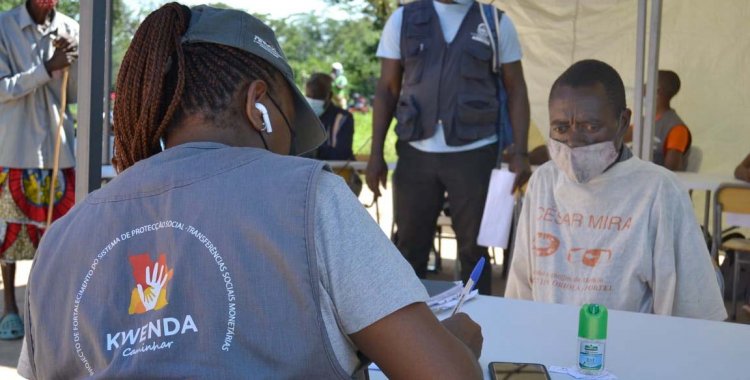"The Council of Ministers found that the regular and predictable receipt of monetary values by beneficiaries, since 2020, has been a reason for satisfaction, insofar as it allows them to meet basic and immediate needs, from food consumption, expenses with children's health and education, investments in goods and agricultural production", stresses a note from the Council of Ministers, during which an assessment of the application of the "Kwenda" Social Protection Strengthening Program was presented this Monday.
Since the start of the program, 610,382 families in extremely vulnerable situations have already benefited from payments, directly integrating 16,924 families and indirectly 84,620 in income-generating activities, having covered up to date 61 municipalities, 214 communes and 9397 neighborhoods/villages, in 18 provinces from the country.
The program has funding of 420 million dollars, of which 320 million dollars comes from World Bank credit and 100 million dollars from the Government, and is expected to benefit 1.6 million households, through social monetary transfers, productive inclusion, municipalization of social action and a single social register.
The main objective of "Kwenda" is to help establish an effective national system of social protection, in the short and medium term, through the implementation of poverty alleviation measures, by increasing the financial capacity of families.
At the Council of Ministers, chaired by the head of state, João Lourenço, the Government approved the National Contingency and Emergency Plan for the Prevention of Influenza A (H1N1), to provide an effective response to the threat of a pandemic, adds the final communiqué of the meeting.
The instrument establishes a set of guidelines and procedures that, in addition to providing an effective response to the threat of a pandemic caused by influenza A (H1N1), ensure the continuity of essential services to the population, safeguarding people and the country's economic and social situation.
According to the communiqué, the plan foresees the establishment of a multisectoral and multidisciplinary coordination mechanism at national, provincial and local level; analysis of the risk of introducing and transmitting the disease in the country, while planning, promoting and monitoring the implementation of the measures contemplated in each phase of the Contingency and Emergency Plan.
The plan also foresees the reinforcement of the National Public Health Epidemiological Surveillance System in relation to possible suspected cases, in risk groups, and in relation to the notification of flu cases; as well as strengthening the institutional capacity of laboratories and establishing mechanisms for detecting and screening the H1N1 virus in suspected human and animal cases, in addition to implementing preventive measures from an agricultural and livestock perspective and awareness and community mobilization.
In the second extraordinary session of the Council of Ministers, a proposal for a law that grants authorization to the holder of executive power to legislate on the Legal Regime of Transit Activity was considered for submission to the National Assembly.
The aforementioned diploma aims to adjust the legal framework for the exercise of this activity, having subsequently analyzed the respective presidential legislative decree, which defines the most adequate criteria for access and the norms for the development of the freight forwarding activity, the strengthening of powers of regulation, supervision and inspection by the State administration, as well as its adjustment to the current macroeconomic context and to the objectives of the public administration reform.
As part of the actions to implement the roadmap for the reform of the public business sector, the Council of Ministers approved the transformation of the Cargo Road Transport companies (Unicargas, U.E.E.) and Urban Collective Transport of Luanda (TCUL, U.E.E.), into joint-stock companies , converting them into public domain companies.
"Thus, the referred companies, henceforth, shall be called "Unicargas - Empresa de Transporte Rodoviário de Cargas, S.A." or "Unicargas, SA." or even "Unicargas" and TCUL - Empresa de Transporte Colectivo Urbano de Luanda, S.A. or abbreviated "TCUL, S.A." or even "TCUL", stresses the statement.
With this transformation, the executive says he intends to give a new dynamic to the structure and operation of these companies, through a business management model that ensures the achievement of greater efficiency and openness in the segments of goods transport, logistics operation and people and goods.







